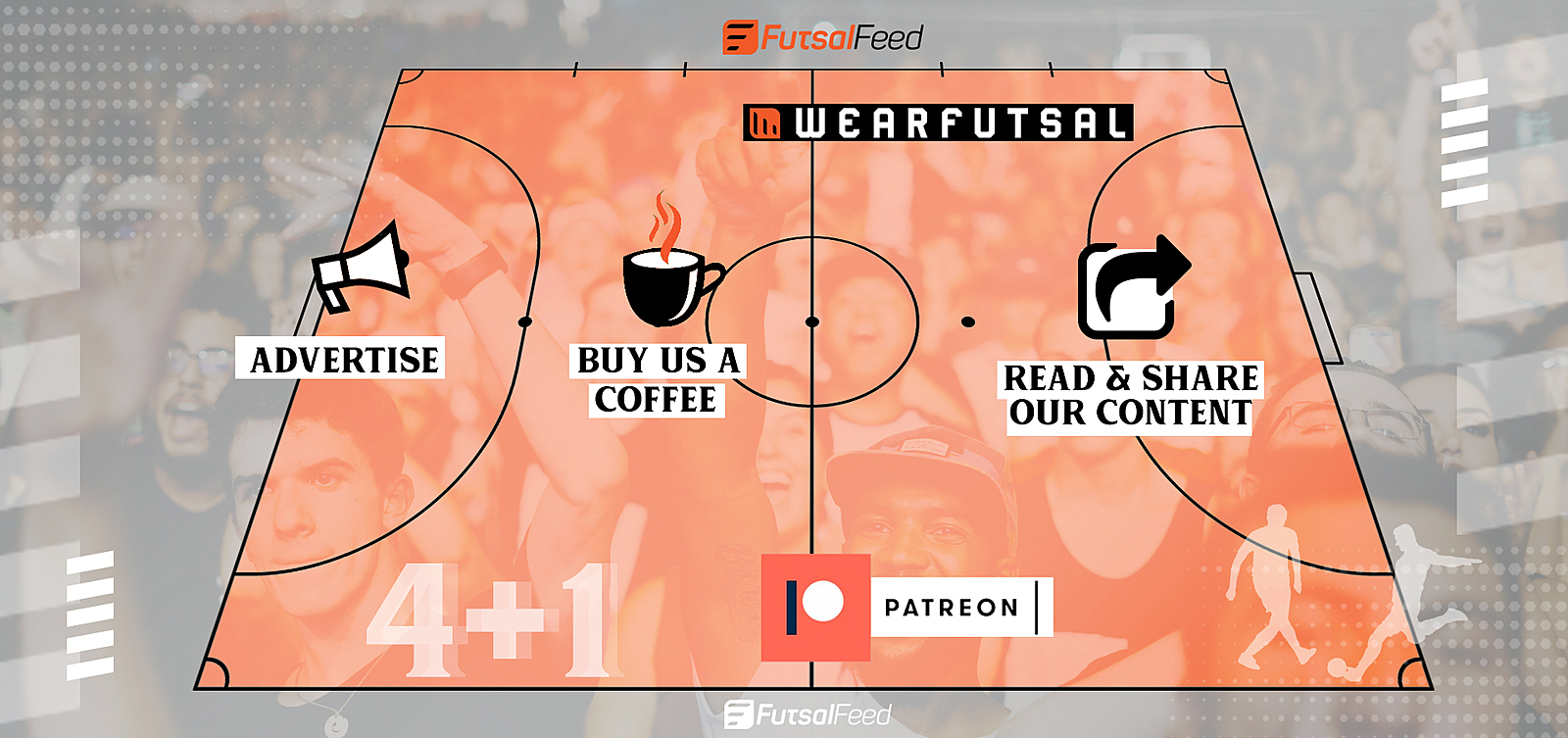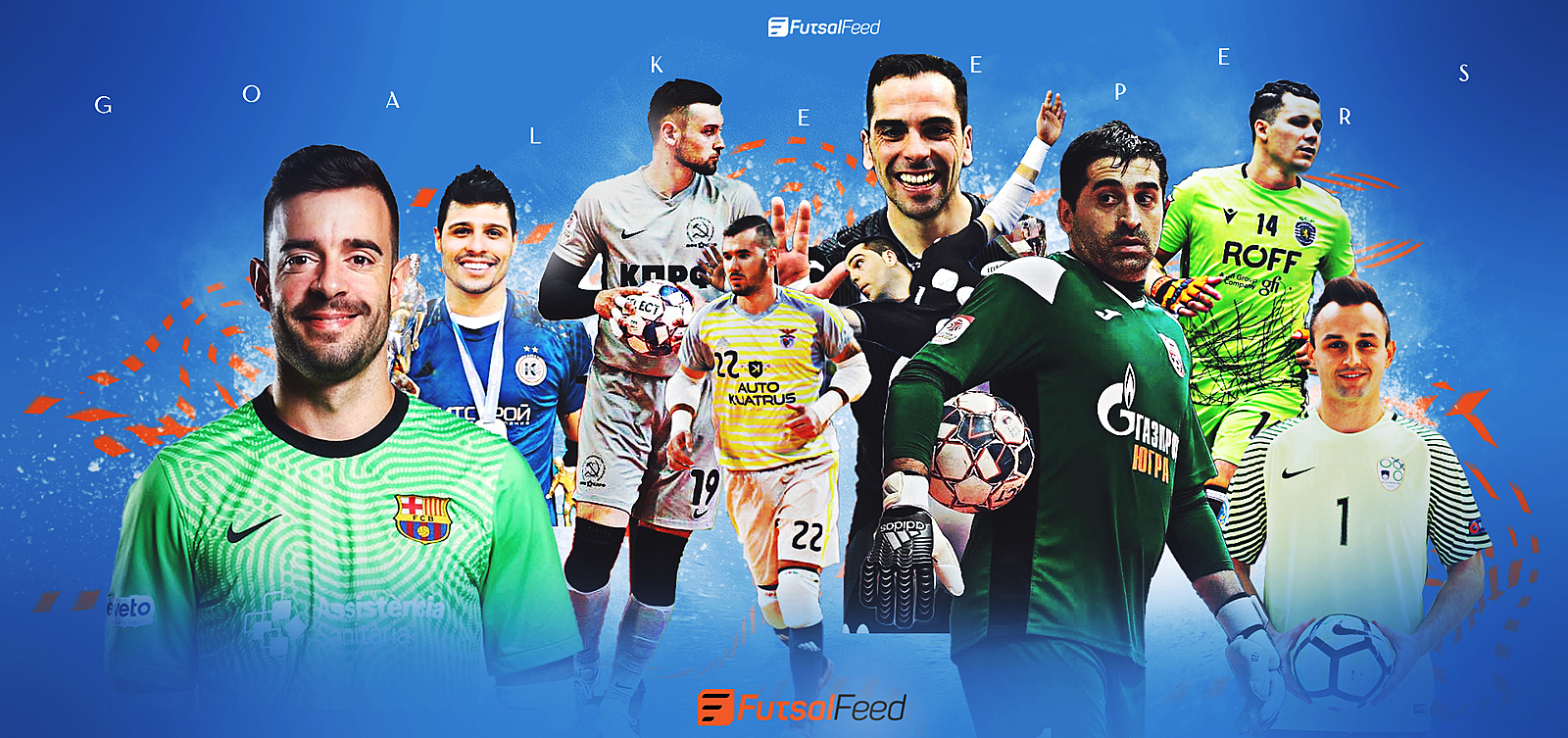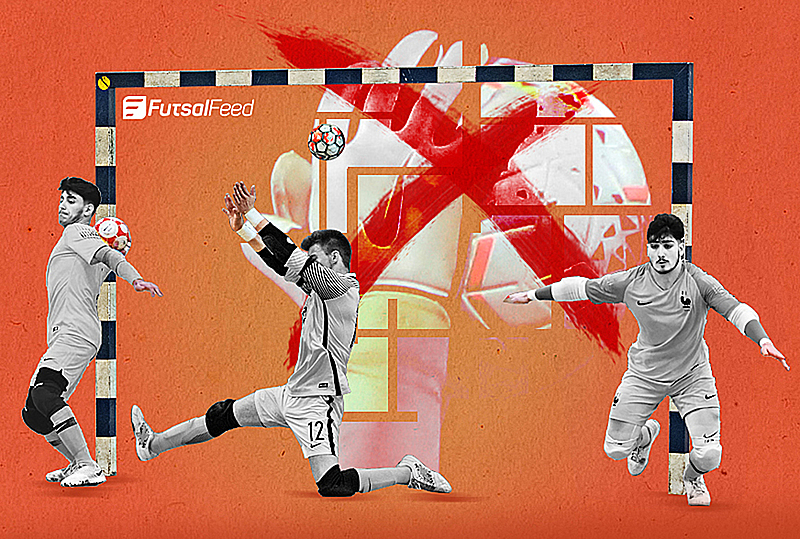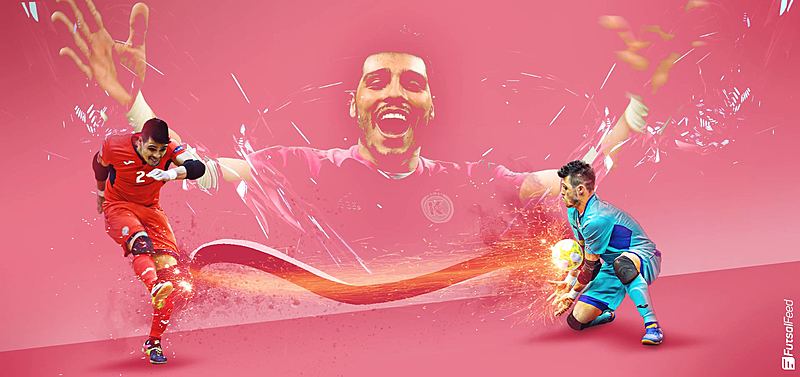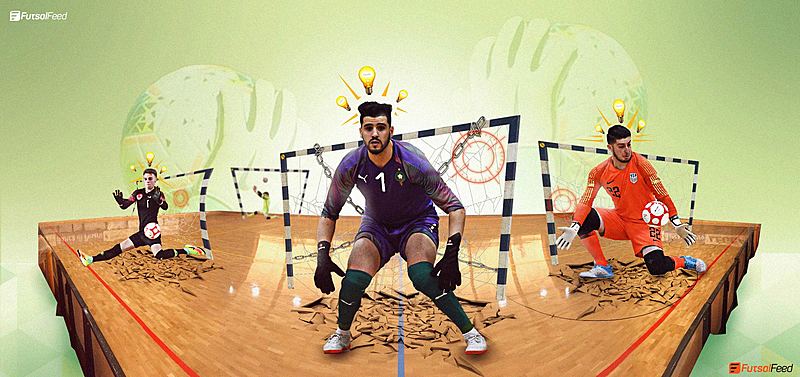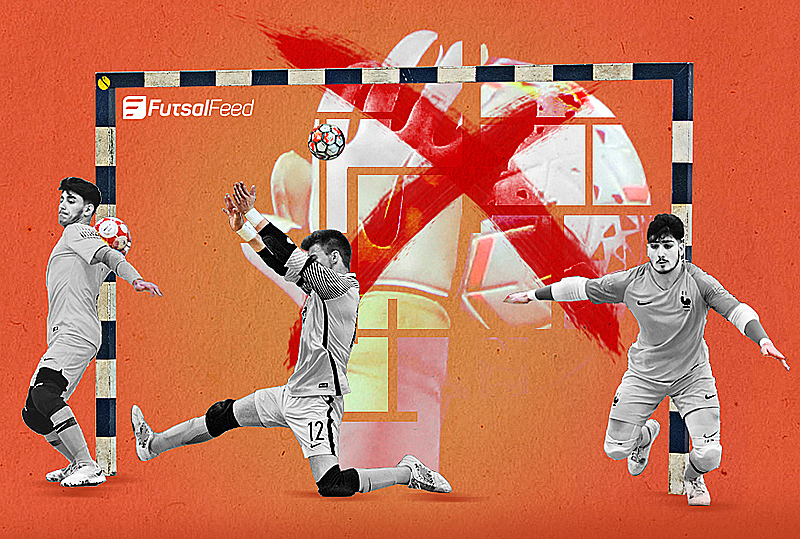The UEFA Futsal Champions League Final Eight tournament in Zadar (Croatia) gathered the best eight European teams at the final tournament and showed all the power and potential of Futsal. It really is a shame that the stands of a fantastic venue called “Krešimir Ćosić Hall” were left empty once again due to the Covid protocols.
Analyzing the Goalkeepers, once again showed just how important they are for the team. I am very sure that everyone will remember Jesus Herrero’s (Inter FS) blunder that he made against Sporting in the semifinal, but almost everybody already forgot about Pola’s (Inter FS) miss on an empty net from 30cm after Borja’s corner-kick in the same match! But that is the destiny of the Goalkeepers and all Goalkeepers must be aware of that!
When Goalkeepers are in question, every spectator will have his own opinion about them that is based on emotions, general impression, or some other criterium. But to reach a realistic conclusion of their performance, we will use facts. I have to emphasize that the goal of this analysis is not to praise or criticize any of the Goalkeepers, or to “rank” them in any way. It is obvious that the Goalkeeper’s performance is directly connected to his team’s style of play, his coach’s ideas, and the opponent’s style of play.
Futsal Goalkeepers need to take more shots
But firstly, this tournament showed a clear division between two types of Goalkeepers. The ones that their teams (coaches) use in the attacking phase just for the passes from their own side of the court (their own box) and the ones that can also be used in the attacking phase as another (fifth) player in the court!
Goalkeepers made 20 shots towards the target in the attacking phase (shots in power-play situations were not calculated in this statistic). Guitta (Sporting) scored one goal. Out of this 20, 17 shots were made by Goalkeepers who are Brazilians.
- Higuita (Kairat): 3 shots (one match – played only for 32’ before getting sent off),
- Roncaglio (Benfica): 5 shots (one match + extra-time). He was not used in the attacking phase when his team implemented a power-play,
- Guitta (Sporting): 9 shots and 1 goal (three matches).
This data is not coincidental because I believe that the teams picked their Goalkeepers to be compatible with the system of the entire team.
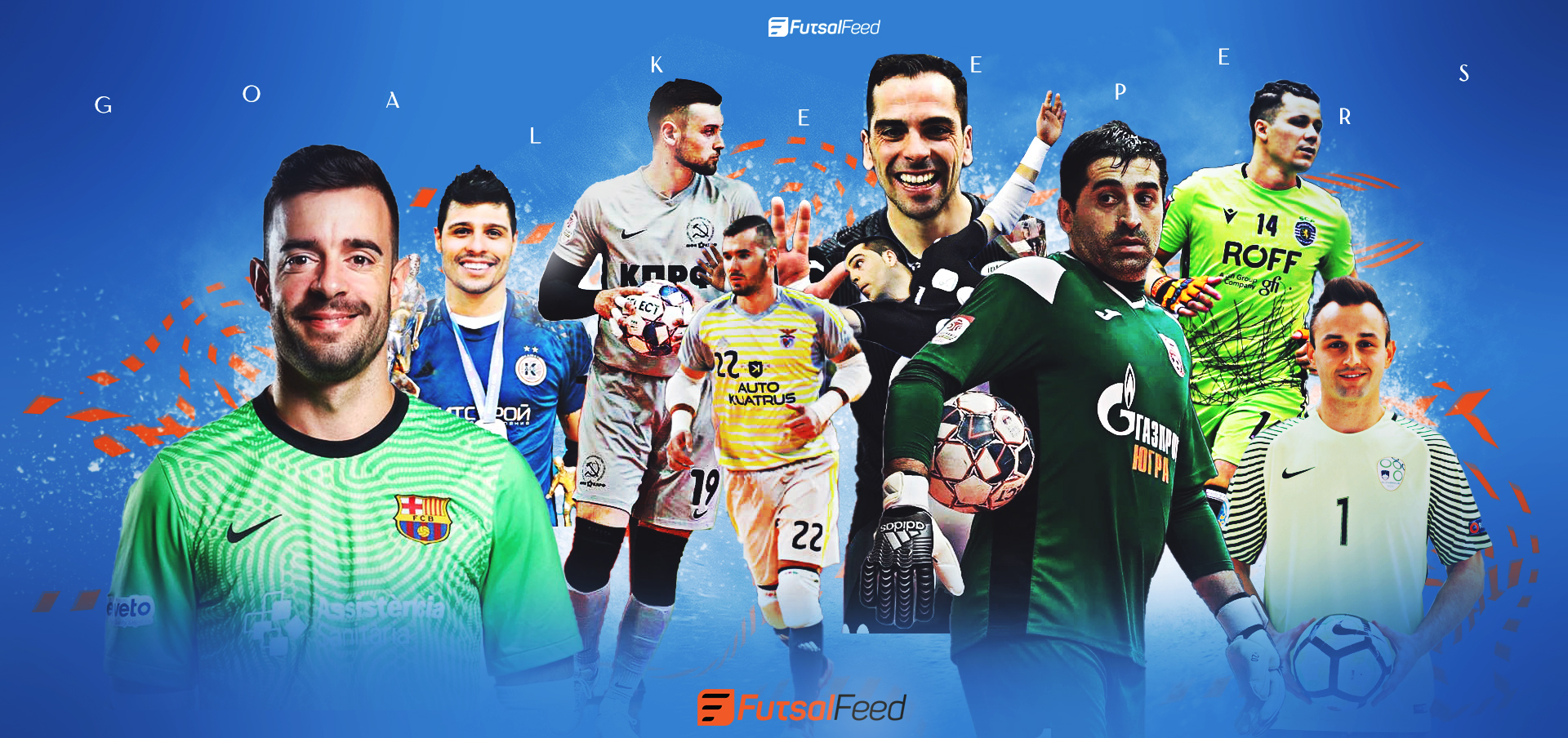
Futsal Goalkeepers and passing
Nevertheless, if we take a look at the passes made (with hands and feet) as another aspect of the attacking phase in which Goalkeepers have a significant impact, we can see that the Goalkeepers that were used as players in the attacking phase have a significant number of lost balls:
- Higuita (Kairat): 7 lost balls (one match – played only for 32’ before getting sent off),
- Roncaglio (Benfica): 4 lost balls, out of which one was directly responsible for conceding a goal (1 match + extra-time),
- Guitta (Sporting): 32 lost balls! (three matches)
It is very well worth noting that Jesus Herrero (Inter FS) had one direct assist for his team’s goal.
If we take a look at cut balls in the defensive phase (outside of the box or balls that come into the box from the side), only Puškar (Dobovec) did not have a single intervention of that kind. Nevertheless, a reader should have in mind that this category mostly depends on the way the Goalkeeper's team plays, so it is not always directly connected with the Goalkeeper himself. In this category, Goalkeepers that stood out the most are:
- Didac (Barça) – 15 (3 matches)
- Guitta (Sporting) – 14 (3 matches)
- Higuita (Kairat) – 5 (1 match)
- Tsaider (KPRF) – 5 (1 match)
Percentage of saves only better in ice hockey
When we’re talking about the percentage of saves, we come to the affirmative fact that only Goalkeepers in ice hockey have a better percentage of saves than Goalkeepers in Futsal:
- Sporting: Guitta 50/43 – 86% (3 matches)
- Barça: Didac: 32/27 – 84.38% (3 matches)
- Inter FS: Herrero 24/20 – 83.33% (2 matches)
- Kairat: Higuita 12/11 – 91.67% (1 match), Serikov 20/16 – 80% (2 matches)
- Benfica: Roncaglio 21/18 – 85.71% (1 match + extra-time), Andre (1/0 – 10m penalty)
- Ugra: Kupatadze 12/10 – 83.33% (1 match)
- Dobovec: Puškar 10/8 – 80% (1 match)
- KPRF: Tsaider 11/8 – 72.73% (1 match)
- TOTAL: 192/161 – 83.85%!!
It should be emphasized that in this tournament Kairat had to use their reserve Goalkeeper (Serikov), due to Higuita’s red card. This 19-year-old won the sympathies of the spectators because he, although without much of an experience on this level, seemed very brave. Anyway, this example shows the necessity of the clubs to have at least two or three quality Goalkeepers that can help their team adequately in every situation.
If we take a closer look only at the final match between Sporting and Barça, we can conclude that this was a very hard match for Goalkeepers – physically, but also mentally. The importance of the match, big rhythm changes, a large number of shots on goal (Guitta 19/16 (84,21%) – Didac 15/12 (80%) – Sporting’s fourth goal was scored on an empty net), and their active involvement in the attacking phase, made the Goalkeepers performances crucial for the end result. But that is always the case when talking about Goalkeepers.
The importance of continual work with Futsal Goalkeepers
Definitely, this Final Eight tournament in Zadar showed that the Goalkeeper’s role in modern Futsal is of extreme importance and as such, it demands systematic and planned coaching. The importance of Goalkeeper’s technique, tactics, psychological preparation and stability, game sense, decision making, communication… are only some of the segments of Goalkeeper’s development.
However, it is not realistic to expect all of these things from the Goalkeepers without professional coaching throughout the season. The necessity of having a Goalkeeper coach in every club’s staff (regardless of the competition level) has become a ‘must have’ for all serious clubs. And we didn’t even mention professional work with Goalkeepers in the club’s youth systems… that is a proper investment in the future.
>>> 4+1 easy ways how you can support FutsalFeed
